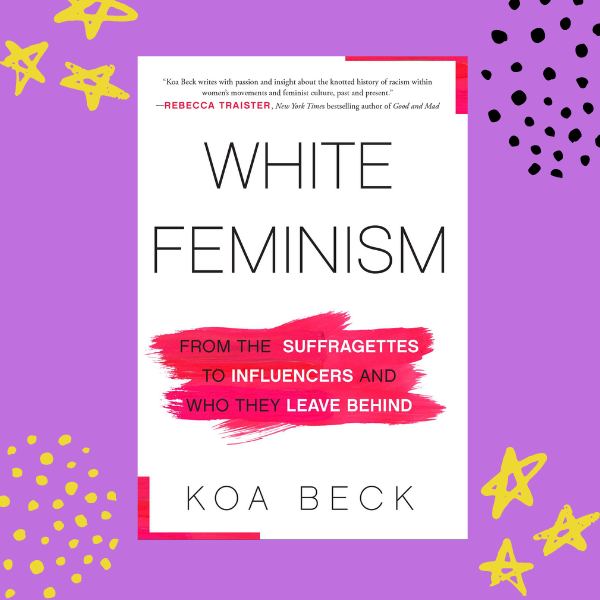In White Feminism, Koa Beck is doing some CALLING OUT. Drawing on detailed research and personal experience, she takes readers back and through first wave American feminism (aka white feminism) to show how it started and the tools it has used to propel itself forward, the same tools that are used to this day that are detrimental to progress for all communities, especially the marginalized communities it refuses to make space for. Almost no issue is left untouched, including systemic racism and capitalism. Note that in the context of this book, there is a difference between white feminism and a white person who is a feminist.
Synopsis
In Part one, Beck walks the reader through the history of white feminism, how it began, and the specific ways it has capitalized on its advantages to exclude BIPOC voices. In Part two, the ways that white feminism functions today is further explored. The tie-in between white feminism and capitalism is analyzed with multiple examples. Part three brings us to the present moment, and includes examples from the COVID-19 pandemic and how it has affected communities of color more than anyone else. Issues like this are highlighted throughout the book; Beck delves deep into the ways that white feminism ignores the glaring systemic issues that disproportionately affect marginalized communities. She combines feminist theory and history with her own experiences working in media. Finally, the author provides us with substantial solutions that we should actively put into practice, in order to work together toward the feminism we all need. Beck follows through on the book’s indictment of white feminism, down to the very last page where it gets more personal as she pushes readers to introspection.
My thoughts
Usually when I read books that touch on topics that have taken place very recently, within the last two to three years, it can feel too soon for reflection. However, Beck’s argument throughout was only further solidified with the more recent examples she brought in, like the current pandemic, and proved how white feminist practices are so ingrained in societal frameworks, providing all the more reason to resist and dismantle it. The fact that she included solid suggestions for making meaningful change is especially important.
Beck’s call for a more collective feminism focused on the issues that matter to marginalized communities echoes what Black feminists have been pushing toward for years, but she adds to the conversation with a detailed history of white feminism, as well as her personal experience in the media industry. I think this is a book everyone should read, and would make an invaluable addition to your feminist shelf.
To learn more about this book and the author, check out FBC founder Renee Powers’ recent discussion with Koa Beck.

